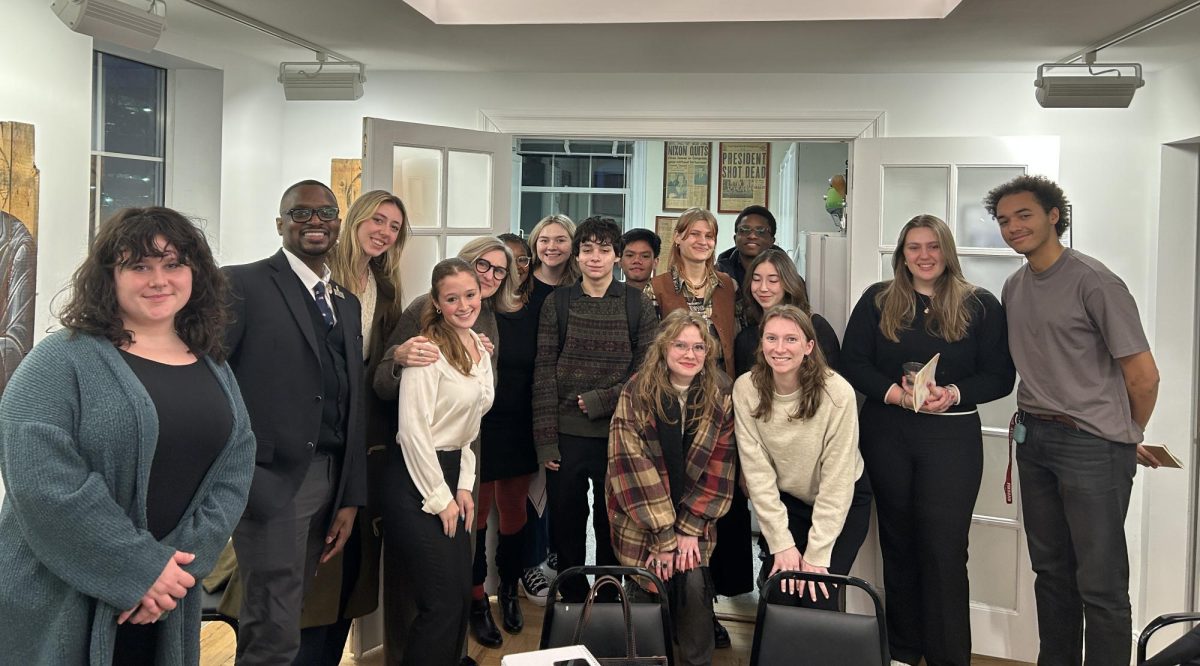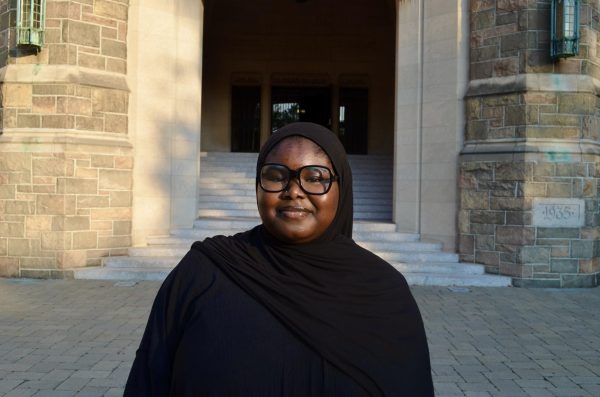In a conference room on the second floor of Canisius Hall, an often unnoticed building you pass on your way to Faculty Memorial Hall (FMH), the Institute of International Humanitarian Affairs (IIHA) hosted speaker Julie Belanger on Wednesday, Jan. 29. Belanger is the senior liaison officer for emergencies and resilience for the Food and Agriculture Organization (FAO) of the United Nations. She is based in New York and has over 25 years of experience in the humanitarian field.
The IIHA, founded and based at Fordham University, invited Belanger to speak with students as part of their Conversations with Humanitarians speaker series. At the event, Belanger fielded questions from students about her career journey and her thoughts on current developments in the humanitarian field.
Ruth Mukwana, a Helen Hamlyn Senior Fellow and the Director of Humanitarian Graduate Studies at Fordham, invited Belanger to speak. She introduced this initiative after interviewing Humanitarian Studies students about what they wanted to see from the department.
“One of the things that came out from the students I spoke with was community and an interest in speaking to professionals in the humanitarian sector so they could learn more outside of class and really try to understand how to navigate the sector,” said Mukwana.
As students learned about potential career paths, Belanger also gained insight into what concerns and issues are on students’ minds today.
“I think it’s great to understand what young soon-to-be graduate students, what kind of questions they have on a career path like this,” said Belanger. “It’s kind of the meeting of two worlds because it will never be the same as the world I started in, but experience is not to be thrown away either.”
Grace Olander, FCRH ’27, who is double majoring in International Studies and English, attended this event to learn about the broader geopolitical context in which humanitarian efforts are caught up.
“One major point discussed was how the current trajectory of global politics is steering away from financing humanitarian projects, with some governments regarding such spending as ‘unnecessary’ or ‘excessive’ funding,” she said. “Given the tumultuous state of the world — ravaged by conflict, disease, climate change, and economic instability — this situates the United Nations and other humanitarian organizations in a position where crises remain, but collective support is wavering. Consequently, the UN must adapt its practices to meet the shifting priorities of the global order.”
Belanger’s conversation with students is timely as global conflicts and threats to the humanitarian sphere rage on. In the wake of President Trump’s threatened federal funding freeze, the United States Agency for International Development’s (USAID) website went dark without explanation on Saturday, Feb. 1. Congressional representatives and USAID employees were left confused and scrambling to uphold this vital humanitarian agency. The ongoing uncertainty around the U.S.’s funding for key government agencies and the faltering support for humanitarian efforts leaves students and humanitarians alike with questions about the future of humanitarianism.
Belanger points out that the U.N. should not just reconsider its financial strategies but also how it can reinvigorate public compassion and faith in humanitarian efforts.
“I think it’s going to be how do we recalibrate the focus right now and the humanity in the world,” she said. “I think it’s important to say that we are not the solution, that people need to reconnect with their humanity. It’s not because you’re in Congo or the United States; climate change is for everybody.”
Expanding on this idea of shared humanity, Mukwama shared what she hopes students take away from this speaker series.
“Truly, we are living in such difficult times, and there are so many people in need of humanitarian aid, and that number continues to grow…to really remind people that there are humans behind all these numbers we see,” she said. “From the speaker series, I hope that students can get inspired to actually do work in this sector.”
The IIHA plans to host speakers on the last Wednesday of each month for the rest of the semester. The next Conversations with Humanitarians event is scheduled for Wednesday, Feb. 26, from 4-5:30 p.m. The IIHA is hosting an Open House on Thursday, Feb. 13, from 12-2:30 p.m.








































































































































































































